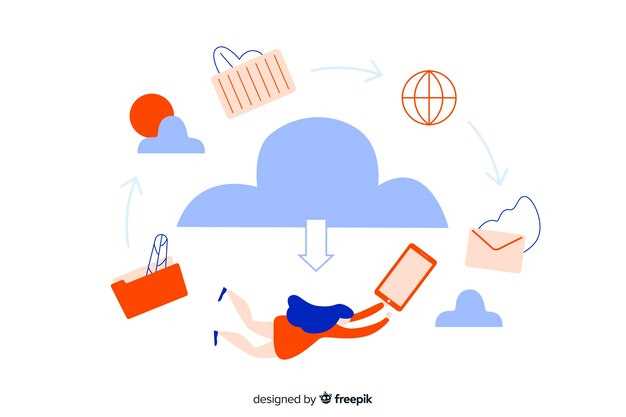Contemplating venturing into online communities where property ownership is a central theme? Before you proceed, grasping the nuances of terms like “Land Baron” is paramount. This isn’t just about understanding slang; it’s about deciphering a specific socio-economic perspective prevalent in certain online subcultures.
This exposition traces the term’s genesis, pinpointing its initial surge in online discourse – specifically around 4chan’s /biz/ board circa 2017-2018. It examines how this phrase, initially deployed with ironic intent, has mutated into a multifaceted descriptor. It now encompasses aspects of financial acumen, perceived societal power dynamics, and even, paradoxically, a form of aspirational self-identification.
We dissect current instances, illustrating how the idiom is employed across various platforms–from Reddit threads discussing real estate investment to meme-driven commentary on housing affordability. Understanding the underlying connotations is vital to avoid misinterpretations and effectively engage in relevant conversations.
Genesis of the “Proprietor Supreme” Term
The term’s emergence is linked to online forums, particularly those frequented by incel communities during the mid-2010s. These boards often depicted stereotypical characters portraying distinct power dynamics.
Specifically, “Proprietor Supreme” arose as an antithesis to the “soyboy” stereotype: a physically weak, socially inept male. It’s a hyper-masculine figure possessing robust features, wealth acquired through property ownership, projecting dominance.
The association with owning tracts of land is significant, symbolizing traditional concepts of wealth, power, independence. This contrasted sharply with the perceived dependency, lack of control often attributed to the “soyboy” archetype.
Early examples can be traced to image macros, short videos prevalent on platforms like 4chan, Reddit. These media snippets showcased exaggerated characteristics associated with property magnates, solidifying the term’s visual representation.
Over time, the phrase experienced a shift beyond its original subculture. It is adopted, reinterpreted across various internet circles, sometimes used ironically, sometimes sincerely, to describe a specific type of successful, self-reliant individual.
What Qualities Define a True Estate Baron?
Focus on property appreciation, not immediate rental income. A genuine estate baron prioritizes long-term gains through strategic acquisition location, neglecting short-term profit maximization.
Key Attributes
| Attribute | Description | Example |
|---|---|---|
| Financial Acumen | Demonstrates deep understanding property valuations market cycles, mortgage strategies. | Secures property below market value leverages debt refinancing for portfolio expansion. |
| Strategic Vision | Anticipates future trends growth potential areas. | Invests in underdeveloped neighborhoods poised substantial appreciation due infrastructure projects. |
| Tenant Management | Selects reliable tenants minimizes vacancies eviction rates. | Implements rigorous screening processes offers incentives long-term occupancy. |
| Property Maintenance | Maintains properties high standards increases attractiveness tenant retention. | Invests regular upgrades ensures properties remain competitive desirable. |
The Acquisition Imperative
Invest heavily location. Purchase properties areas characterized robust economic activity strong population growth. Prioritize proximity employment centers transport infrastructure. Conduct thorough due diligence assess zoning regulations environmental factors.
How is “Proprietor Alpha” Employed in Web-Based Conversations?
Online, “Proprietor Alpha” primarily functions as a satirical archetype. Its use signifies admiration for individuals controlling significant property assets, often depicted as financially secure “winners.” Conversely, it can also denote mockery of perceived arrogance or exploitative conduct associated with property ownership.
Image macros paired with the term frequently depict muscular or physically imposing men, reinforcing the concept of dominance linked to property wealth. Common platforms for these usages include Reddit (particularly subreddits focusing on finance or socio-political commentary), 4chan, various Discord servers, alongside Twitter.
The phrase is often interwoven into arguments concerning housing affordability, tenant rights, or broader socioeconomic inequalities. For instance, users might sarcastically praise a “Proprietor Alpha” for raising rents, thus highlighting perceived injustices in the housing market. Its employment adds humor, although often cynical, to discussions regarding capital.
Beyond memes, the term serves to identify real-world figures or policies deemed supportive of large-scale property accumulation. Government initiatives favorable to landlords may draw comparisons to actions benefiting “Proprietor Alphas,” framing policies via a particular ideological stance. Such usages reveal the phrase’s capacity as an instrument for political commentary coupled with ideological critique.
Is “Property Baron” a Compliment or Insult?
Context dictates valence. Used ironically within online communities sympathetic to landlord grievances, the term adopts a celebratory tone, acknowledging the inherent power imbalance between proprietor landowner property owner proprietor landlord and tenant. Think of it as a badge of honor, playfully exaggerating wealth and influence.
Conversely, outside of these spaces, especially in discussions about housing affordability or tenant rights, “Property Baron” functions as pejorative. It highlights perceived greed, exploitation, price gouging, and the concentration of wealth in real estate. Activists and social commentators employ it to critique systemic issues within housing markets.
Nuance also exists based on the specific actions attributed to the property owner. For instance, a landlord accused of neglecting property maintenance or unfairly evicting tenants will likely be labeled a “Property Baron” negatively. Conversely, a property owner known for fair pricing and tenant support might find the label less offensive, perhaps even amusing if used ironically.
Therefore, assessing user intent and the broader conversational context is key to determine whether “Property Baron” carries a positive or negative connotation. Consider the source, the audience, and the specific behaviors being discussed. The perception of value hinges on these factors.
Q&A:
I’ve seen “landchad” used online, often alongside unflattering terms for renters. Is this just another meme meant to be hateful, or is there something more nuanced to it?
While “landchad” exists within online meme culture, and its usage can sometimes be intertwined with disparaging comments about tenants (often referred to as “rentoids”), it’s not always purely hateful. The term often carries a layer of irony. Some users employ it to mock landlords, painting them as caricatures of wealth and power. Others might genuinely admire landlords who are perceived as providing valuable housing and contributing positively to their communities, albeit often through a heavily romanticized lens. It’s vital to consider the context in which the term is used to grasp the speaker’s actual intent.
Okay, so “landchad” seems like a playful term… until it isn’t. How did this meme originate, and what made it become popular?
Tracing the exact origin of “landchad” is difficult, as it emerged organically within online communities. It likely arose from pre-existing internet tropes and stereotypes surrounding landlords and tenants, fueled by discussions about housing costs, property ownership, and economic inequality. The meme probably gained traction because it offered a concise and often humorous way to engage with these complex issues. The visual association with the “Chad” archetype – the muscular, confident, and successful male figure – added another layer of irony and appeal, allowing users to quickly communicate a range of opinions about landlords and their role in society. The internet’s tendency to latch onto and amplify such content contributed to its widespread recognition.
The article suggests there are “good” landchads and “bad” ones. What separates a landchad who is viewed favorably from one who isn’t? Are there specific behaviors or qualities that define each type?
The distinction between a “good” and “bad” landchad, as defined by the meme, often relies on perceived fairness and ethical conduct. A “good” landchad might be seen as someone who maintains their properties adequately, charges reasonable rent, is responsive to tenant requests, and refrains from exploiting their position of power. They might be viewed as providing a valuable service by offering quality housing at an affordable price. Conversely, a “bad” landchad is characterized by neglect, excessive rent increases, slow response times, and a general disregard for tenant well-being. These individuals are perceived as prioritizing profit above all else, potentially leading to negative living conditions for their tenants. Of course, these are highly subjective evaluations, often based on anecdotal experiences and online narratives.
I’m thinking of investing in rental properties. Is adopting a “landchad” persona or mindset a smart approach to being a landlord? Should I try to be the “good” landchad, or is this whole thing just a joke?
While the “landchad” concept can provide amusement, directly adopting it as a business strategy is ill-advised. Viewing your role through the lens of an internet meme can lead to missteps and potentially damage your reputation. However, understanding the *underlying values* associated with a “good” landchad – such as fairness, responsiveness, and property upkeep – can certainly inform your approach. Focus on providing quality housing, treating tenants with respect, and maintaining open communication. Prioritizing these values will contribute to a positive landlord-tenant relationship and a successful rental business, regardless of whether you embrace any particular internet persona.




